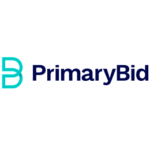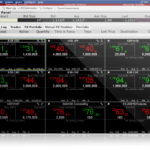No, you cannot trade CFDs in America. In fact, if you are an American you cannot even open an account with a UK CFD broker. You used to be able to trade CFDs as an American if you had a hedge fund registered off-shore but now some CFD trading platforms won’t onboard hedge funds if US residents are involved.
What are CFDs?
CFDs are a form of trading known as contracts-for-difference meaning in theory you are speculating on the opening and closing price of a position. In practice, trading CFDs is the same as buying and selling stocks. i.e. if you wanted to trade the equivalent of 100 Apple shares you would trade 100 Apple CFDs.
Why can’t you trade CFDs in the US?
There are reasons why you can’t trade CFDs in the UK.
- Not exchange traded: CFDs are OTC (Over The Counter) derivatives products you can go long or short. Meaning you can make money when stock prices go up or down.
- Leverage: As you trade CFDs on margin. So as an example, you can get exposure to $10,000 of Apple stock, with only a $2,000 deposit (20%). In America to trade on leverage, you trade on margin, where the broker lends you money to trade, instead of funding a derivative position.
- Unregulated: As CFDs are not regulated by the SEC or FINRA, they are therefore banned. As a US citizen, you are also not allowed to open an account with an offshore broker to trade CFDs.
Alternatives to CFD trading for Americans
If you want to get the benefits of CFDs as an American there are alternatives that offer leverage and the ability to go long or short.
Futures
Futures brokers let you can either trade single stock, index, commodity or forex futures. Whereas CFDs are either daily rolling contracts or have a very long-dated expiry. Quarterly futures contracts allow you do buy or sell a set amount of an underlying asset for a set date in the future. Normally, quarterly. Futures are either cash-settled, or you take delivery of the stock when they expire. They are not quite a flexible, as they are traded in fixed lot sizes. You also get leverage, as you only need to put down initial margin calculated by the exchnage. They are saver than CFDs though as they are traded on-exchange so there is less coutner party risk.
Options
Options trading platforms let you buy calls to go long or buy puts to go short. These are better than CFDs as your risk is limited to the premium you pay and if you buy out-of-the-money options you can make massive profits (or your option can expire worthless).
Leveraged and inverse ETFs
ETFs are traded on the stock market and some are designed to exaggerate the moves of the underlying shares or index. So say for example the S&P moves 5%, the ETF is designed to move 15%. This is sort of like trading on leverage.
Inverse ETFs also let you buy a share that grows in value when the underlying market goes down. For example an inverse gold ETF like the ProShares UltraShort Gold, will go up when the price of gold goes down.

Richard is the founder of the Good Money Guide (formerly Good Broker Guide), one of the original investment comparison sites established in 2015. With a career spanning two decades as a broker, he brings extensive expertise and knowledge to the financial landscape.
Having worked as a broker at Investors Intelligence and a multi-asset derivatives broker at MF Global (Man Financial), Richard has acquired substantial experience in the industry. His career began as a private client stockbroker at Walker Crips and Phillip Securities (now King and Shaxson), following internships on the NYMEX oil trading floor in New York and London IPE in 2001 and 2000.
Richard’s contributions and expertise have been recognized by respected publications such as The Sunday Times, BusinessInsider, Yahoo Finance, BusinessNews.org.uk, Master Investor, Wealth Briefing, iNews, and The FT, among many others.
Under Richard’s leadership, the Good Money Guide has evolved into a valuable destination for comprehensive information and expert guidance, specialising in trading, investment, and currency exchange. His commitment to delivering high-quality insights has solidified the Good Money Guide’s standing as a well-respected resource for both customers and industry colleagues.
To contact Richard, please see his Invesdaq profile.



